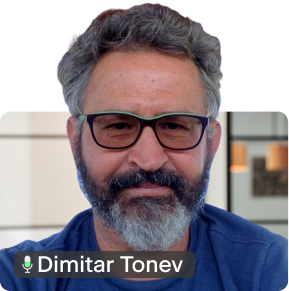Webinar recap: The evolving landscape of liver disease

This webinar, hosted by Sano CEO Dr. Patrick Short and featuring Dr. Dimitar Tonev, an expert in liver disease and hepatology, sheds light on the latest developments in liver disease – particularly metabolic dysfunction-associated steatohepatitis (MASH) – including significant changes and predictions for the future.
The link to the full webinar is here; a brief summary is below for easy reference.
About the speakers
Patrick Short
Patrick Short is a Cambridge-trained PhD geneticist with experience researching large-scale genome sequencing and rare disorders. He is dedicated to driving the world’s transition to precision medicine through Sano, which combines genetic testing, recruitment, and long-term engagement in one platform, accelerating enrolment and simplifying operations for precision medicine studies.

Dimitar Tonev
Dr. Dimitar Tonev is a hepatologist with over 25 years of experience specialising in innovations and disease-modifying therapies in MASH. He has worked for various companies in the pharmaceutical, diagnostic, and device industries, and is currently a consultant for liver disease drug development
Highlights from the webinar
What’s in a name?
Dr. Tonev highlighted the evolving landscape of liver disease, particularly focusing on the shift from MASH to Metabolic Dysfunction-Associated Steatotic Liver Disease (MASLD). This renaming acknowledges that some patients with MASLD also consume alcohol to a certain extent, challenging the previous notion of non-alcoholic liver disease. The new terminology aims to eliminate stigma and encompass a broader range of liver diseases caused by both alcohol and metabolic factors.
What’s the latest in the MASH treatment research space?
The conversation included discussion of anticipated drug approvals in the forthcoming quarter, but noted that the negative advisory committee decision for Obeticholic acid’s potential treatment of MASH was a setback that resulted in the withdrawal of the drug from the field and the termination of the REGENERATE trial. On a more positive note, the ongoing phase three trial from Madrigal studying resmetirom has shown promising results without any significant safety concerns. This has led to expectations of a provisional licence for its approval.
While discussing the developments in MASH treatment, Dr. Tonev highlighted that saroglitazar, developed by Zydus, has already received approval from the Drug Controller General of India for MASH treatment. This underscores the global impact of liver disease research and the potential for groundbreaking treatments beyond specific regions.
Summary
The webinar emphasised the need for new treatments in the field of liver disease and the anticipation of significant advancements in the near future. Despite the challenges posed by the pandemic and the slow pace of development, there is optimism surrounding the approval of new drugs and the potential for improved patient outcomes.


